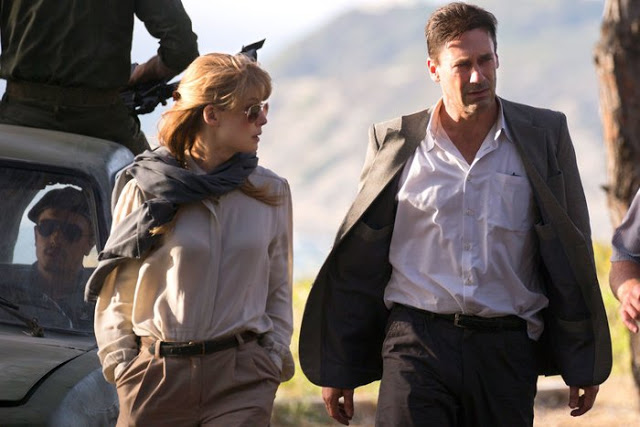Beirut: Watch the Terrorists, and Your Back
For a movie purportedly concerned with the strife and factionalism that have ravaged its war-torn central city, it’s telling that Beirut opens with a scene of hobnobbing luxury. The year is 1972, and we’re at a lavish dinner party where the host, Mason Skiles (Jon Hamm), is schmoozing effortlessly with his well-to-do guests. He’s regaling them with some Lebanese history, and while his tale—a loaded parable about uninvited immigrants chafing an entrenched citizenry—may be troubling, his tone is buttery velvet, his face all smiles. It’s a productive dissonance that proves to be an apt metaphor for Beirut itself, a film that strives to be profound and discomfiting and settles instead for being broadly, almost inadvertently enjoyable. As brokered compromises go, the Middle East has seen worse.
The most obvious source of this accidental pleasure is Hamm, who plays Mason with a twinkly intelligence that nicely complements his patented superiority and world-weariness. As sketched in Tony Gilroy’s uneven script—which punctuates that initial soiree with a fatal spray of gunfire before fast-forwarding ten years—the Mason of the present is a classic redemption case, a morose drunkard who scarcely resembles the cheery mingler from a decade earlier. Hamm articulates Mason’s superficial glumness well enough—and it doesn’t get much glummer than mediating labor disputes in a rainy Boston suburb—but he’s better at revealing the smooth operator underneath, the intuitive poker player who once served as one of his country’s top diplomats. Mason, who may be the highest-functioning alcoholic in recent cinematic memory, is too up on his game to be down in the dumps. Read More

